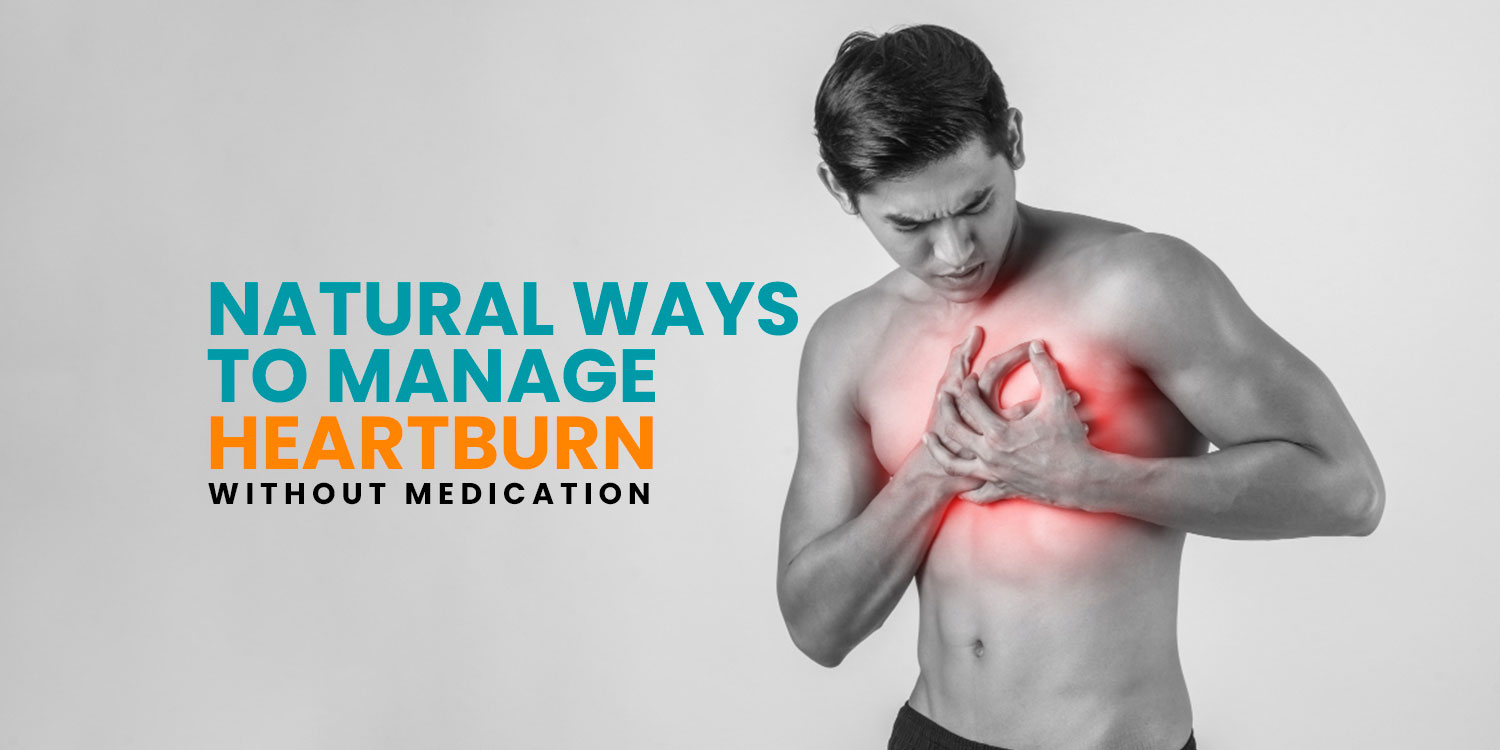Natural Ways to Manage Heartburn Without Medication
Heartburn can be an uncomfortable and frustrating experience, but there are several ways to manage it beyond just taking medication. By making simple lifestyle adjustments, you can help reduce the frequency and severity of heartburn episodes.
1. Watch Your Diet
One of the biggest triggers for heartburn is diet. Avoiding fatty and spicy foods, as well as carbonated or citrus drinks, can significantly reduce symptoms. These foods can relax the lower esophageal sphincter (LES), allowing stomach acid to rise into the esophagus (Zalvan et al., 2017).

2. Loosen Up
Tight clothing, especially around the waist, can put extra pressure on your abdomen and increase heartburn episodes. If you frequently experience heartburn, opt for looser-fitting clothes that don’t constrict your stomach area (Kaltenbach et al., 2006).

3. Chew Gum
Surprisingly, chewing gum may help! A small study found that chewing gum for 30 minutes after meals can reduce heartburn symptoms. The act of chewing stimulates saliva production, which can help neutralize stomach acid and promote digestion (Moazzez et al., 2005).

4. Elevate Your Head While Sleeping
Heartburn often worsens at night because lying flat makes it easier for acid to travel up your esophagus. Using a couple of pillows to elevate your upper body or investing in a wedge pillow can help keep acid where it belongs—in your stomach (Koufman et al., 2012).

5. Lose a Little Weight
Even a small amount of weight loss can make a big difference in managing heartburn. Extra weight puts pressure on your stomach, increasing the likelihood of acid reflux. Shedding a few pounds can relieve some of this pressure and reduce symptoms (Singh et al., 2013).
Making these simple changes can go a long way in managing heartburn naturally. While medication can be helpful in certain cases, addressing lifestyle factors can provide long-term relief.

References
- Kaltenbach, T., Crockett, S., & Gerson, L. B. (2006). Are lifestyle measures effective in patients with gastroesophageal reflux disease? Archives of Internal Medicine, 166(9), 965-971.
- Koufman, J. A., Aviv, J. E., Casiano, R. R., & Shaw, G. Y. (2012). Laryngopharyngeal reflux: position statement of the committee on speech, voice, and swallowing disorders of the American Academy of Otolaryngology–Head and Neck Surgery. Otolaryngology–Head and Neck Surgery, 127(1), 32-35.
- Moazzez, R., Bartlett, D., & Anggiansah, A. (2005). The effect of chewing sugar-free gum on gastro-esophageal reflux. Journal of Dental Research, 84(11), 1062-1065.
- Singh, M., Lee, J., Gupta, N., Gaddam, S., Smith, B. K., & Sharma, P. (2013). Weight loss can lead to resolution of gastroesophageal reflux disease symptoms: a prospective intervention trial. Obesity, 21(2), 284-290.
- Zalvan, C. H., Hu, S., Greenberg, B., Geliebter, J., & Kamelhar, D. (2017). A comparison of alkaline water and Mediterranean diet vs proton pump inhibition for treatment of laryngopharyngeal reflux. JAMA Otolaryngology–Head & Neck Surgery, 143(10), 1023-1029.




